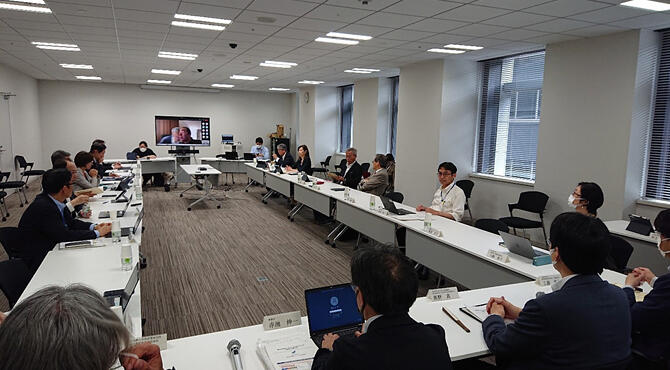The CSTI Expert Panel has decided to mandate the immediate publication of research papers, starting with new public applications from 2025. This follows the G7 collaborative commitment to open science, as stated in the G7 Summit and G7 Science and Technology Ministers' Communique. The government now hopes to present their national open access (OA) policy by the end of this fiscal year and begin negotiations with publishers. This will be included in the government's Integrated Innovation Strategy and reflected in the budget allocations for the coming fiscal year.

In the words of Sanae Takaichi, Minister of State for Science and Technology Policy, "From now on, we will work with MEXT to secure the necessary budget. We will also explain the project to relevant organizations and universities."
The global trend is shifting from subscription-based to gold OA models, where profits are derived from the article processing charge (APC). In line with this trend, Japan and several other countries now adopt a conversion contract. This contract combines subscription fees and APCs into a single contract. For example, ten universities, Tohoku University, the University of Tokyo, Tokyo Institute of Technology, Yokohama National University, the University of Fukui, Osaka University, Kobe University, Okayama University, Waseda University, and Tokyo University of Science, signed a conversion contract with Springer Nature in January 2023. This contract allowed all affiliated researchers to submit papers without APCs.
This compiled result proposes several specific measures and procedural improvements to obtain immediate OA for academic papers and others starting with new applications for public research funds in 2025. Currently, three companies, Elsevier, Springer Nature, and Wiley, account for about half of the overseas journal subscription expenditure of Japanese universities and other institutions. Because of this oligopoly, e-journal subscription fees have increased 1.6 times, and APC has increased by 5.6 times in eight years.
Until now, subscription fee contracts have been signed on an individual university basis. This rendered the universities' bargaining powers very weak. Of course, funding agencies can be expected to increase their valuable support to gold OA, but this alone is insufficient. Collective bargaining by large-scale research universities can leverage the economies of scale and enhance their ability to negotiate prices and win contracts with favorable terms and conditions. Having their own platform will be advantageous in negotiations.
The government can provide support in managing tough negotiations through inter-university collaboration, unlike in the past. Furthermore, the compiled result proposes a digital U library (provisional name) as a safety net for subscribing to infrequently used journals and accessing those not covered by their institutions. This will ensure that researchers who are not affiliated to any universities are not left behind. Moreover, for immediate publication, the primary assumption is that the publication of research results will be on public platforms (Green OA).
Although Green OA has been around for several years via institutional repositories, it has not succeeded at many universities. The reason could be that registering an author's final proofread in the repository is a complicated process and international visibility does not increase even when it is posted. The compiled result encourages posting the author's final proofread after publication of papers and using preprints.
J-STAGE (e-journal platform and data repository) and Jxiv (preprint server) operated by JST, research data infrastructure systems (CiNii, GakuNin RDM, JAIRO, etc.) operated by NII, and institutional repositories of universities can be used. In addition to connecting and upgrading these systems, linking them with the European Open Science Cloud (EOSC) and other platforms will make the foundation for a Green OA with worldwide visibility, stronger. To promote these efforts, the evaluation of research studies needs to be reviewed.
Although the Impact Factor (IF) is not used as an index for evaluating papers, it can be used for various other evaluations. A strong support for journals with high IF can make intense negotiations with publishers difficult. The Vice President of Tohoku University and Director of Tohoku University Libraries, Noriko Osumi observed: "I have participated in the discussions so far, and (this result) is pointing in the directions we should aim for. It will be very important to see how researchers take this into account in the actual field."
Publicly funded research results already have OA. ERC in the EU, UKRI in the UK, and NWO in the Netherlands mandate immediate publication; SNSF in Switzerland mandates the immediate publication of some and publication of others after 6 months; NIH, NSF, DOE, and others in the US, DFG in Germany, and CAS and CSFC in China mandate publication after 12 months. Furthermore, the US has announced a conversion policy allowing for immediate OA. Japan is clearly lagging behind, but the results compiled this time can lead to a significant shift toward OA.
This article has been translated by JST with permission from The Science News Ltd. (https://sci-news.co.jp/). Unauthorized reproduction of the article and photographs is prohibited.




